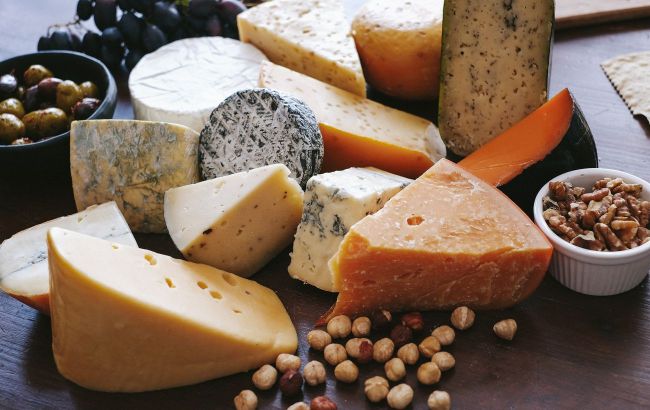Best cheese for heart health: Cardiologist's recommendation
 Illustrative photo (Freepik)
Illustrative photo (Freepik)
Cheese tastes great on sandwiches, in salads, with wine, or even just on its own. However, health-conscious individuals may want to steer clear of certain types of cheese if they are looking to protect their heart health, as some varieties of cheese can be harmful. Nonetheless, there's one type that cardiologists deem very beneficial, according to Parade.
According to Dr. Cheng-Han Chen, a doctor of medical sciences and a certified interventional cardiologist, some foods high in saturated fat and sodium can increase the risk of cardiovascular disease. Conversely, a plant-based diet high in fiber and low in saturated fats can be beneficial for your heart.
However, the expert believes that although cheese may contain high levels of saturated fats and sodium, it can still be part of a heart-healthy diet.
Dr. Chen refers to a 2022 study in the Nutrients magazine, which showed that people who consumed cheese had a lower risk of heart diseases. He emphasized the importance of moderation when consuming cheese as part of a heart-healthy diet.
"The cheese you choose [should not be] too high in saturated fat and sodium, and [eaten] in moderation," he says.
The cardiologist named mozzarella as the best cheese for heart health.
"It's a good source of protein and calcium, and even contains probiotics that can benefit gut and immune health. Fresh mozzarella is also lower in saturated fat and sodium than other cheeses," Dr. Chen added.
He mentioned that 100 grams of mozzarella cheese contains over 6 grams of protein, 143 mg of calcium, 138 mg of sodium, and approximately 4 grams of saturated fats.
As for heavily processed and manufactured cheeses, the doctor recommended avoiding them to safeguard one's health.
This material is for informational purposes only and should not be used for medical diagnosis or self-treatment. Our goal is to provide readers with accurate information about symptoms, causes, and methods of detecting diseases. RBС-Ukraine is not responsible for any diagnoses that readers may make based on materials from the resource. We do not recommend self-treatment and advise consulting a doctor in case of any health concerns.

